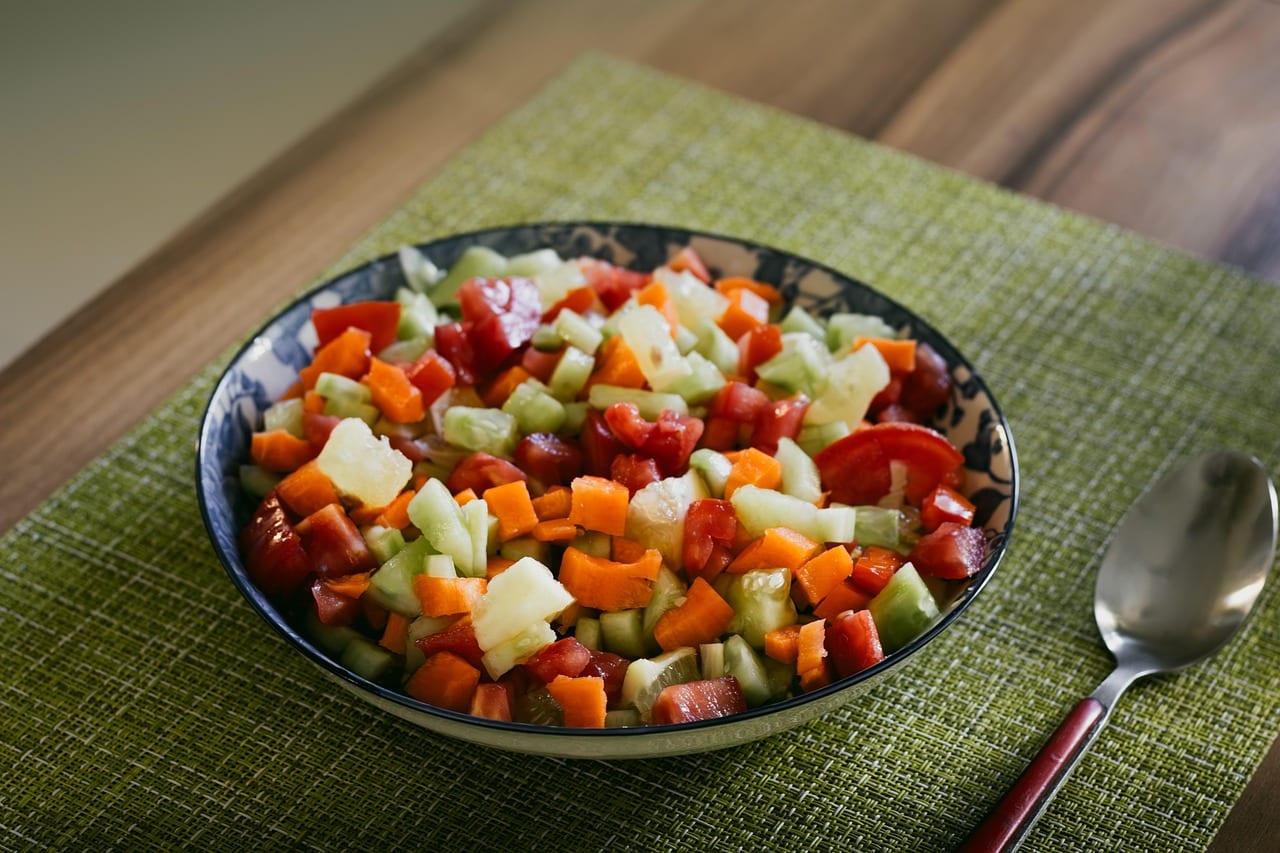Food Is Medicine: No Fads, Just Real Change
Before my cancer diagnosis, I never thought much about what I ate. I was naturally thin and assumed that meant healthy. A lot of mornings started with muffins, 2-3 hash browns from McDonald’s. And commercial orange juice felt like a healthy choice. I hated vegetables (with the exception of an occasional cucumber). I’d snack on Tim Tams or donuts mid-afternoon and often grabbed takeout for dinner.
Because I didn’t gain weight, I thought I was fine.
At 34, everything changed. Cancer forced me to reckon with my health—really see what I was feeding my body. During treatment, I began shifting gently: bone broth, soups, more vegetables. I still craved pizza and fried chicken during chemotherapy, and I honored that—because my body was already under so much stress.
But afterward, I knew I needed a reset. I wanted to rebuild my foundation.
The Science: What Our Bodies Actually Need
Through research and curiosity, I came to believe that health starts at the cellular level—and that food plays a foundational role in how we heal, think, move, and live.
Here are some essentials:
Macronutrients:
- Carbohydrates (from fruits, legumes, and whole grains) provide steady energy and fuel brain function.
- Proteins are essential for tissue repair, immune support, and enzyme production.
- Fats, especially healthy ones (like avocados, nuts, and olive oil), help with hormone regulation, brain health, and nutrient absorption.
Micronutrients:
These include vitamins and minerals, needed in smaller amounts but critical for hundreds of cellular processes. They support strong bones, immune resilience, energy production, and protect our cells from damage.
Other Essentials for Health
- Water, to support every physiological function.
- Phytonutrients, plant compounds (like flavonoids and carotenoids) with antioxidant and anti-inflammatory benefits.
- Fiber, for gut health, blood sugar balance, and digestion.
- Probiotics & Prebiotics, to nourish a healthy microbiome.
A Simple Visual Guide: The Harvard Healthy Eating Plate
This science-based model offers an easy to remember, balanced approach to meals: (Harvard T.H. Chan School of Public Health, Healthy Eating Plate).
- ½ your plate: colorful vegetables and fruits
- ¼ plate: whole grains (like brown rice or oats)
- ¼ plate: lean proteins (like beans, tofu, fish, or chicken)
- Add healthy oils, stay hydrated, and minimize sugary drinks.

Gut Health: The Hidden Key to Energy and Immunity
Another area of importance is the gut microbiome is. Our “inner garden” of bacteria influences everything—from digestion to mood to inflammation. To support it, here’s what to eat more of:
-
Prebiotics: garlic, onions, bananas, oats, apples, legumes
-
Fermented foods: yogurt, kimchi, sauerkraut, kefir
-
Fiber-rich foods: lentils, grains, veggies, flax, chia
-
Polyphenols: berries, dark chocolate, green tea, olive oil
-
Hydration: herbal tea, water, melons, cucumber
🔻 What to Limit
- Processed foods, excessive alcohol, red meat, and artificial sweeteners. These can disrupt your gut and trigger inflammation.
No Fads. Just Real Food, Real Change.
I don’t count calories (it’s honestly too tedious for me, and I wasn’t worried my weight but the content of what I eat is more important to me). I tried keto diet but I didn’t enjoy eating that way. I tried intermittent fasting but I felt very starved and deprived. There is not one that fits all approach and you may want to experiment with what works for you.What made the most difference for me was this simple philosophy:
- Eat real, whole foods as often as possible.
- Cut back on sugar and processed foods.
- Follow the Healthy Eating Plate model.
- Eat in a calm, mindful way—slow down eating and being aware of each bite.
- The order of eating helps too: veggies first, then protein, then carbs. This slows digestion and blunts glucose spikes.
Takeaways – Start Where You Are
Not sure where to start? Try cutting out processed foods and refined sugar for a week. Notice what shifts—you might be surprised: less bloating, more energy, fewer crashes.
Eat as much whole and real foods as you can — vegetables, fruits, legumes, whole grains, and healthy fats—mostly plant-based whenever possible and pick lean proteins like fish, tofu, or chicken or grass-fed beef.
Mindful eating – Chewing well, eating without distractions, and savoring food improved my digestion and reduced cravings. Studies even show that eating slowly helps regulate appetite and prevent overeating. Try it: sit down, put away your phone, and just eat.
Limit alcohol. Moderate alcohol intake has been linked to increased risk of certain cancers, weight gain and disrupted sleep. Reducing alcohol can support clearer thinking, better digestion, and more balanced energy throughout your day.
These small shifts add up. I still remember when I ate whatever was easy and had no discipline. Today, I genuinely enjoy colorful, nourishing whole foods. It’s not about being perfect. It’s about choosing what supports your body—and your future.
Every plate is a chance to care for yourself. And that feels like intention and self-respect.


